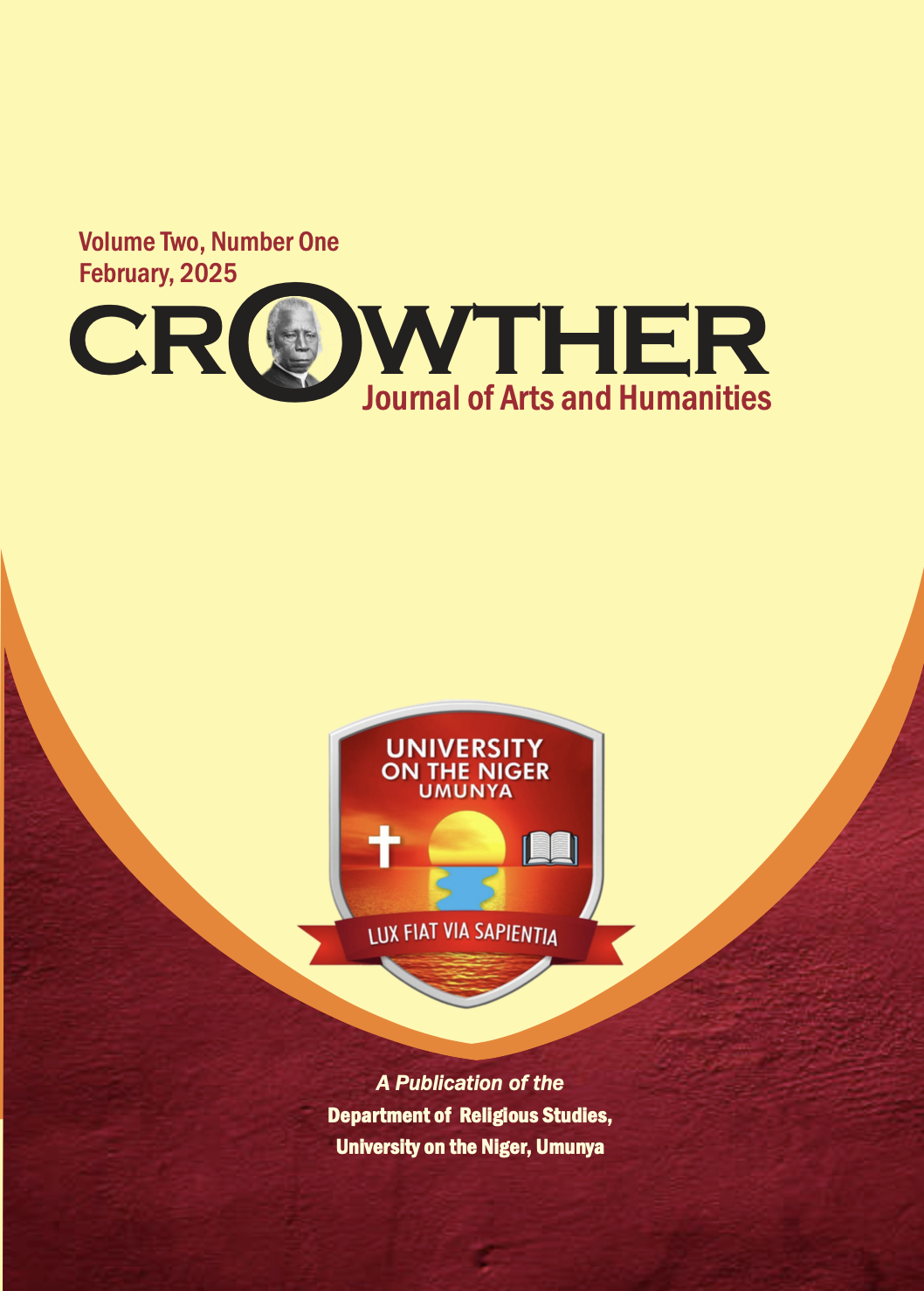SOCIO-RELIGIOUS IMPLICATIONS OF ARTIFICIAL BEAUTY AMONGST NIGERIA CELEBRITIES: AN ETHICAL EVALUATION
Abstract
The phenomenon of artificial beauty practices, such as cosmetic surgery, skin bleaching, and tattooing, has become increasingly popular among Nigerian celebrities. These practices raise significant socio-religious and ethical concerns within the Nigerian context, especially when evaluated through the lens of Christian, Islamic, and traditional Igbo religious frameworks. Christianity, while cautioning against vanity and emphasizing inner beauty (Philippians 2:3-4, 1 Timothy 2:9), allows exceptions for medically necessary procedures. Islamic teachings stress Allah’s sovereignty over the body, expressing concerns about altering God’s creation. Similarly, traditional Igbo beliefs regard the body as sacred, discouraging modifications that could compromise its spiritual integrity (2 Corinthians 5:10). Despite these religious cautions, many Nigerian celebrities continue to engage in cosmetic enhancements, driven by societal beauty standards and personal desires. This study adopts a qualitative research methodology, using both primary data from personal communications with religious leaders and healthcare professionals, and secondary data from religious texts, academic literature, and case studies. The findings highlight the conflicting dynamics between religious teachings, personal aspirations, and societal pressures. The research concludes that while artificial beauty practices present significant ethical dilemmas within Nigerian society, greater emphasis should be placed on informed decision-making and the ethical implications of cosmetic procedures in relation to religious values. Healthcare providers are encouraged to raise awareness of the physical and psychological risks associated with these practices, aligning medical advice with ethical considerations rooted in Nigeria’s religious and cultural context.


